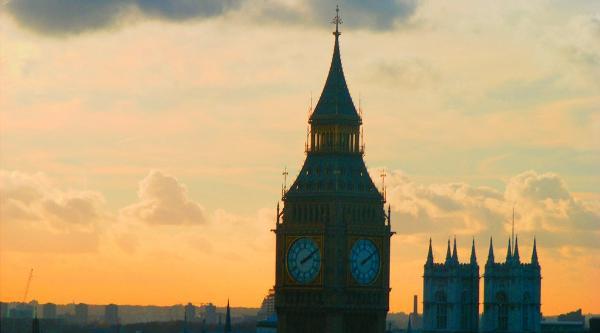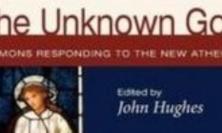In a week when faith leaders have spoken out on the Embryology Bill currently before Parliament, and the think tank Theos launched a report urging caution in the church’s partnerships with government, Frank Turner SJ reflects on the proper relationship between religion and politics, and how different European countries view it.
How do religion and politics relate to each other? How should they relate? Should they be, as some would have us think, entirely separate realms? Or are there some ways in which religion and politics influence each other that are legitimate and proper? Professor Ninian Smart identifies a number of ways in which religion relates to politics, which can be summed up in five points:[1]
(i) Religion interacts in various ways with the nation-state, which is now a relatively homogeneous concept across the global community. It also interacts with international organisations such as the European Union. This structural relationship will be the principle focus of this reflection, and dominates current debates. But it is worth noting certain other modalities;
(ii) Many religions are powerful worldwide forces, and thus affect international politics. It is the resurgence of Islam internationally that has provoked or reheated the whole ‘religion-politics’ debate;
(iii) Religious conflicts can intensify divisions within and between states. Smart, a professor of Religious Studies, surprisingly fails to add that religions can also help heal such divisions. In the Middle East, the senior leaders of the three Abrahamic Faiths, in the Alexandria Declaration of 2002, joined in insisting that all killing of the innocent is a desecration of the ‘Holy Name of God’;
(iv) Religious values are often invoked to justify and legitimise political action and political arrangements – for better and for worse. To cite the Middle East again, the conflict is exacerbated by religious views of certain Jewish and Muslim groups that hold the entire land to be a gift from God, therefore politically inalienable. However, other Orthodox Jews reject any Zionism of such a kind as blasphemous. Christians have the opportunity to reject any such idolatry of land;
(v) In some countries there are directly religious parties: in Lebanon, for example, the Constitution requires a balance in government between Christian, Muslim and Druze representatives. Elsewhere, religious views often affect voting behaviour – and therefore, affect electoral politics. Similarly, the behaviour of political leaders often owes something to their religious beliefs;.
Here, though, I shall focus on the ‘Church-State’ dynamic. The classical modern nation-state, as developed in nineteenth-century Europe, was linguistically and culturally based. Regions such as Germany, Italy and Poland acquired self-consciousness in part through the creation of national languages and literatures. Religious affiliation could serve as an additional marker of national identity, as in Poland – with consequent problems for minority groups. Similarly, Italian unification inevitably destroyed the Papal states – which led to considerable subsequent mutual hostility. The Popes first instructed Italian Catholics not to vote, then told them which way to vote – Christian Democrat, and anti-liberal.
Until and even after the Reformation the Church in Europe was a great civil power. The Reformation, in fragmenting and dividing Christianity, lessened its political power but simultaneously increased its potential as a source of political conflict. For example the doctrine of Cuius regio eius religio meant that rulers could throw their subjects into wars to defend and promote their own religious beliefs – wars which often seemed to serve as little more than a cover for their own political ambitions. Let me give just one example, the Thirty Years’ War. This was fought between 1618 and 1648, mainly on the territory of today’s Germany, and most major European continental powers were involved. It was, on the one hand, a religious conflict between Protestants and Catholics; on the other hand it stemmed from the rivalry between the Hapsburg dynasty (Austria, Hungary, parts of what is now Germany) and other powers (France, Spain, Bohemia, Denmark) on grounds that had little to do with religion - as is shown by the fact that Catholic France even supported the Protestant side, so extending the France-Hapsburg rivalry.
During the thirty years of this appalling war, the mortality rate in Germany was about 20%. It was amongst other things a religious war. Even so, it came to seem intolerable that religious difference should animate such slaughter: in reaction, the principle of the separation of Church and State became prominent in Europe and elsewhere (e.g. the US Constitution.). The Church was gradually excluded from civil power. Just as important, the Church itself slowly and reluctantly accepted this outcome, with deep reservations among church leaders, seeking exceptions where possible. But religious affiliation gradually became a free choice of citizens, rather than part of the fabric of the state.[2]
This development was no doubt good and necessary, and cannot be abandoned: for example it is an achievement currently threatened in some forms of Islam. But it also meant that the Church in Europe was increasingly barred from playing a significant part in shaping any public policy. In practice it accepted a new domesticated status – and ‘liberal secular’ states more and more insisted on this privatisation.
A second important reason for the Church’s marginalisation is that it was perceived as asserting authority in such a way as to be hostile to what were rightly coming to be regarded as essential human freedoms, especially freedom of thought: this even though the Gospels and the Pauline writings place a profound value on human freedom, as a unique gift of Christ. The Church’s rejection over several centuries of the social expressions of this principle – and therefore the need of philosophers and others to insist on the principle over against the Church – seems to me a significant historical tragedy.
Hence the historical development of a secular politics that excludes the Church, as for example in the French mode of laïcité. I quote (in translation) from a Dominican colleague in Brussels:-
According to the principle of laïcité, the state does not interfere in the internal affairs of religions, and religions do not interfere in the organisation of the state. This principle is fundamental in European democracies, especially where there is a majority and dominant religion, so that this religious group may not impose its ethical principles and its way of life on society as a whole, especially on religious minorities or on those rejecting any religious affiliation. Naturally, the application of this principle of separation varies widely from one country to another: and such relationships, as well as the concept of laïcité itself, evolve through history.
According to laïcité, ethical convictions, so central to people’s sense of life, belong to the private sphere, since it is not the role of the state to impose an ethic. . . . Nevertheless it is clear that the judgement of what is considered moral and what should be legal is not immutable. There was considerable civil resistance to the legalisation of divorce, contraception, etc.[3]
In this model, since the state must be neutral between religions, and between believers and non-believers, anyone acting in the name of the state must manifest that neutrality. Similarly, the institutions of the state (state schools, hospitals, etc.) must be bare of religious symbols, hence the prohibition of religious dress – crucifixes, veils, etc.
Here is a more provocative account of laïcité, this time expressed by a philosopher who vigorously espouses it:
The state can permit no communal intermediary between itself and the citizen by which the citizen would ‘renounce individual liberty’ – unless the state itself defines that body’s competence, rights and obligations (that is, the Church, or any other social entity). (Robert Legros, L'Avènement de la démocratie, Grasset, 1999, p.70.
In response to Legros, the French theologian Paul Valadier argues that the French model of State-Church separation is locked into an outmoded and ‘haughty’ model in which living, community-based politics is denied.[4] Legros explicitly rejects any autonomy of social groups and civil society organisations over against the state, since they are deemed not to be ‘private’ (a position, incidentally, that is far from the English political philosophy represented by, say, John Locke, who was concerned to circumscribe the limits of the state). For Legros the state becomes the judge of individual liberty. In contrast, Valadier insists that the state must not limit the powers of association of social groups, except to preserve public order. I would add that social groups are in principle an expression of freedom not its renunciation. Legros regards the state as the agent of the people’s emancipation from the imposition of any specific world-view. But such a stance cannot risk recognising the possibility that the state could itself be repressive of the authentic freedom of civil society: not least by claiming (in the name of ‘freedom of thought’) to limit to the private sphere people’s freedom of conscience and freedom of expression. I shall return to this point, since one of the crucial functions of religion is as a critique of the state, and it cannot function as such without having some relative autonomy over against the state.
In France, the model – one might say the doctrine – outlined by Berten and endorsed by Legros has held the field for a century. The very considerable influence of religious groups, and notably of the Catholic Church, is exercised only informally. The doctrine is now, though, under serious challenge. In December 2007, President Nicholas Sarkozy, in a striking and carefully crafted speech during his state visit to the Holy See, called for a newly ‘open’ laïcité. It is worth briefly summarising his argument.
He noted the multiform Christian contribution to French culture, from Bernard of Clairvaux to René Girard. Christianity has penetrated French society, culture, landscape, architecture, so that ‘the roots of France are essentially Christian’. Laïcité is to be seen as a freedom – to believe or not and to change one’s religion, freedom for parents to educate children according to their convictions, freedom from discrimination by ‘the administration’ on religious grounds. In deference to the French model he spoke of freedom, in a newly diverse culture, ‘not to be wounded in one’s conscience by ostentatious religious practices and symbols’. Yet, he insisted, for laïcité to cut off France from its ethical, spiritual and religious heritage would enfeeble the sense of national identity and loosen social bonds. Therefore President Sarkozy called for both a recognition of the special heritage of Christianity and a ‘mature laïcité’.
As a politician, he will not and cannot make decisions on the basis of religious faith. (We do not expect France now to ban divorce and remarriage.) Yet it is crucial that the political conscience be enlightened by ‘convictions not bound by immediate contingencies’ – learning from the ‘richness of our different traditions’.
This speech predictably drew a sharp reaction in France. Some argued straightforwardly that Sarkozy had gone too far, by stressing only the positive contribution of Christianity and neglecting the stifling dominance of the Church that was eventually shrugged off by the Enlightenment, so he tendentiously ignored the hard-won achievement of laïcité. But the secretary of the Socialist Party, François Hollande, was far more scathing. Sarkozy’s speech was ‘an old tune of the clerical right’ that revealed ‘a real confusion between religion and politics’. Hollande’s first phrase here is a mere insult; the second begs the very question at issue. Such a less than rational reaction perhaps illustrates what a raw nerve was touched by Sarkozy. We have not heard the last of this debate. I admit that I have some unease with President Sarkozy’s argument, on quite different grounds than François Hollande. For example, Sarkozy comes close to instrumentalising ‘religious heritage’ in the service of ‘national identity’ and social bonds which, if taken as absolute, amounts to a highly conservative ideology.
There seems little doubt that state neutrality can, up to a point, be beneficent. I have heard Indian Jesuits argue that, in a situation of religious fundamentalism and intolerance, the word ‘secular’ is positive. It means that all religions are equally respected, and that a government is not associated with any of them. For a small minority, such neutrality is precious.[5] But in Europe and the Americas, they perhaps think, the word ‘secular’ carries a different, negative connotation, so that the secular society and government has nothing to do with – or even opposes – religious faiths and practices.
Some people further propose making a distinction between secularism and secularity. For example, they would say, effective inter‑religious dialogue itself rests on the principle of secularity, the maintaining of a space for pluralism in belief: whereas secularism is a militant ideology that would seek a world without religion, or at least would propose a world in which religion was denied representation in public life.[6]
It seems to me that the results of the ‘tough’ secularist position will be self-defeating – or perhaps self-fulfilling! For if secularism becomes an anti‑religious force, then religion is likely to configure itself in a crude way as a counter‑power. In an environment of genuine pluralism, religion can supply social deficits (of social service, of community and belonging, of meaning, etc) and thus play a constructive and peaceful social role. But religion under the pressure of its effective social exclusion becomes more prone to the total rejection of social norms, or even to violence. Given the risks of confining it to the private sphere (against the self‑understanding of almost any religious person) the state should accept some public presence of religion, which does not imply a choice between the various different models.
In conclusion, I would make three points of my own:
1. I argued that separation of Church and State was understandable, perhaps justified, as a historical trend: and to that extent, I sympathise with the more moderate French critics of President Sarkozy. But separation cannot be sustained as a principle. Those of us who proclaim a faith in God accept God as Lord of the whole of our life, our life in all its dimensions – embodied, interior, social, political, within a natural environment. Faithfulness to the Gospel must be sought across all those spheres. We have only one life. In other words, we can and must distinguish the religious and political spheres but never separate them. As so often, the Catholic ‘formula’ is to distinguish and relate. In our present debate, to exclude religious believers from any public debate about ‘where Europe is heading’ must impoverish the debate, and lend it an air of unreality, for it excludes the deepest convictions of a group that is much at the heart of Europe’s past – but even more important, of its present, since religious believers remain approximately 80% of EU citizens.
2. This does not mean, however, that it is proper to invoke God directly in the public discussion of moral and political affairs. Theologically speaking, all mainstream Christian churches accept the key truth put most concisely by the great Protestant theologian Karl Barth. God transcends all human thought – or would not be God – and cannot be captured in human reasoning. Strategically speaking, if the Church wishes to engage in a public discussion about morality, rights, justice, it is ill-advised to appeal to a discourse (about ‘Revelation’) that those without Christian faith cannot possibly share.
3. God, then, is the ‘absolute’: in New Testament language, the one to whom one will grant what we do not grant to Caesar. This absolute, this ultimate, functions both negative and positively:-
(i) Negatively, in that that it prevents other commitments, however genuine and powerful, from becoming themselves absolute. At least three of these always threaten to become more or less absolute: family well-being, national allegiance, the market economy. Absolute national allegiance, for example, is what Christians would call an ‘idol’. In a recent Brussels discussion of the politics of China and India, an eminent Indian university professor of European Studies was questioned about India’s attitude towards human rights. He acknowledged that India resists international interference in its internal affairs. ‘However, the EU . . . should accept that, for some countries, human rights are defined by national interests.’ Belief in God would prevent our accepting that ‘human rights may be defined by national interests’.[7] Similarly, the absoluteness of the market principle can be an idol, and some market thinkers have claimed such absoluteness. (Friedrich von Hayek, a profound influence on the ‘new right’, even argued that any political control over the market is ‘the road to tyranny’.) We need a creative relationship, which is also an inherent tension, between distinct but not separate dimensions of life. No one would exclude business executives from the public sphere on the grounds that the market principle sometimes conflicts with the political principle. So why exclude religious bodies?
(ii) Positively, belief in God underpins our human commitments, our freedom, our energies, and – in the context of this debate especially – our hope. God cannot be worshipped ‘neat’, separate from the service and love of our ‘neighbour’, and the concept of the ‘neighbour’ in the New Testament is universal. The Church is manifestly universal across the globe and across generations. I have experienced this sense of universal community strongly in Africa and Latin America, and it is not a bad perspective (for example) from which to evaluate the achievements and failings of the EU. It is no coincidence that the churches are today’s foremost defenders of refugees. Again, during the Iraq War, I would say that the statements from the Holy See, and from the Bishops Conferences in the US and UK, took far more account than did the politicians, or even the public at large, of the human cost of war to the Iraqis. Accepting the practical consequences of universal human dignity is part of what it means to believe in God. One final example: one of the central principles of Christian social thinking is ‘the universal destination of the goods of creation’. This is a powerful critical principle against all kinds of economic injustices. It is accessible to human reason, no doubt, but it also derives from a sense of human universality that is linked with faith in God as Creator.
There can be little doubt that this creative tension, these moral safeguards, this universal solidarity, this breadth of vision, this hope, are needed in Europe now as much as ever.
Frank Turner, a
British Jesuit, is Director of OCIPE, the Jesuit European Office, in Brussels.
![]() OCIPE, the Jesuit European Office
OCIPE, the Jesuit European Office






